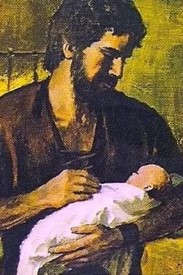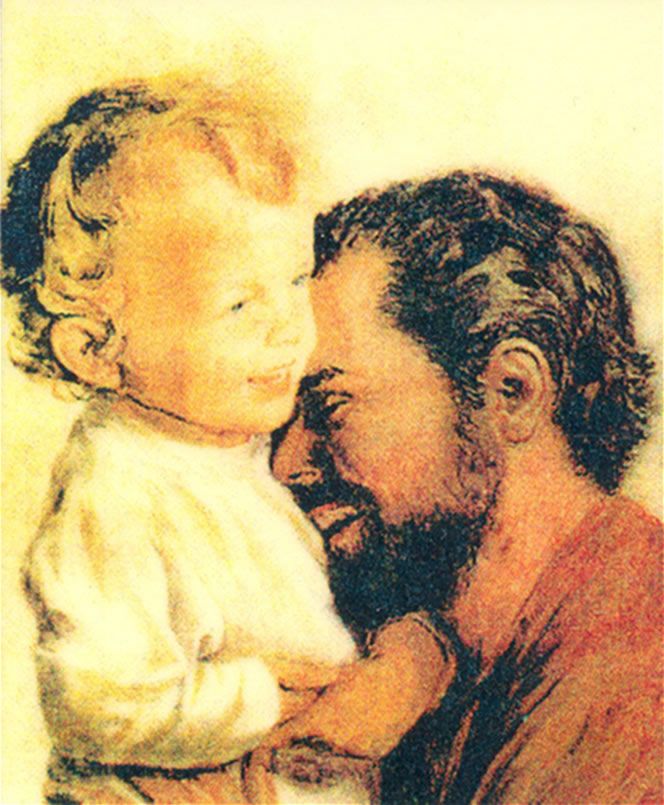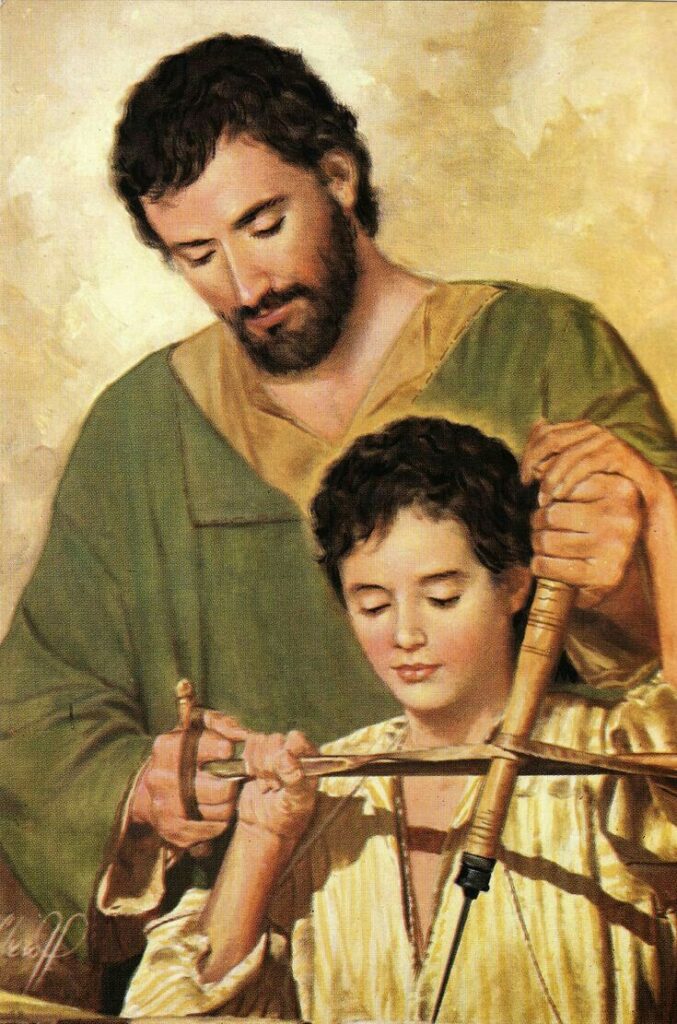By Fr. David Brinton, OGS



The secure and peaceful home life today’s gospel predicts for Jesus, Mary, and Joseph began very differently – with the catastrophic circumstances of Mary’s pregnancy during her engagement to Joseph.
According to the family law of the day, an engaged couple were essentially already married, legally bound to each other, in virtually every way except for sexual intimacy. For a woman to get pregnant during the engagement was scandalous enough, but to become pregnant by someone other than her fiancé was unthinkable and would certainly lead to a public termination of the engagement, the disgrace of the woman and just maybe the recovery of the espoused husband’s reputation and that of his family. So this pregnancy was a monumental crisis for everyone concerned and it all came down to what Joseph would do about it.
As you remember from Matthew’s gospel, Joseph resolved to end the engagement as quietly and discreetly as possible, but then in a dream, he was visited by an angel who revealed to him that the expected child had been conceived by the Holy Spirit and would bring Redemption to all humankind. Joseph was commanded by the angel to proceed with the marriage, take Mary into his home, and raise the child as his own, naming him Jesus. And this he did.
As the gospels unfold they mention Mary and other members of the family many times but Joseph all but disappears. Interestingly, although the gospel of John has no nativity or infancy stories, Joseph is named twice, first by the disciple Philip who refers to Jesus as “the son of Joseph” and later by skeptics of Jesus’s claims who refer to him as “Jesus, the son of Joseph, whose father and mother we know.” But more often Jesus is known simply as the son of Mary, as if Joseph never existed. Subsequent tradition in the church says that he died sometime before the events of Holy Week in the arms of Jesus, the Son of God whom he raised, and Mary the Mother of God whom he loved and protected.
In the history of western art Joseph is often portrayed as a somewhat humiliated husband reduced to drying nappies by the fire or as a doddering old man prone to falling asleep at inopportune moments, like the visit of the magi. But the image of sleeping Joseph is more than a humorous or wistful motif. Like his forbears in the line of David his sleep brings with it dreams, and dreams in scripture are a key means of communication with the divine.
I was astonished to discover that there is a whole new modern devotion to sleeping Joseph, especially strong in the Philippines and apparently popularized by Pope Francis who has an image on his desk of a reclining Joseph, fast asleep. If the pope has a particularly intractable problem he jots it on a piece of paper, puts it under sleeping Joseph and goes to bed trusting that the saint will take his conundrum to the throne of grace.
The dreams that guide Joseph’s actions throughout the Holy Family’s early years are signs that he has been chosen to play a key role in the drama of redemption. And far from doddering, he responds to these dreams fully awake and with resolute action, marrying his wife against all social and religious expectations, helping her to raise her child, protecting them both during the Holy Family’s sojourn as refugees in Egypt.
Joseph kept faith with – he trusted – his wife Mary, and above all, he trusted God. He accepted that the plans he had made had changed beyond his control, and trusted that even though he was being asked to do the most difficult thing for a man in his time and place, it was the right thing to do, that God’s will could be trusted even though the end could not be forseen. And so for you and me, on this St Joseph’s day. Where in our lives are we being called to let go of our own plans, our own sense of what should happen, and trust in God’s providence? “For God is always active, even when he seems far away, and always merciful even when he seems to be giving us more than we can bear.”* May the example and prayers of St Joseph help us to know this truth and rest in it, this Lent and always.
*Fr Alban McCoy, sermon for Advent 4A


